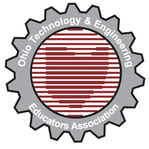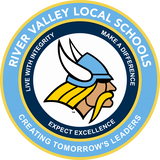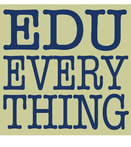Past Session Topics and Descriptions
Full STEAM Ahead- Everyone Aboard the Train - Aubree Horning and Erick Cyders, Marlington Local
|
Participants will experience how a rural school district has integrated STEAM into their elementary curriculum. Marlington has grown from a trial STEAM Club in one elementary to a full elementary STEAM program including a STEAM class for all students K-5, STEAM/PBL integration to teach and reinforce curriculum, out of school club, family STEAM Night, a Summer Camp held every June and an Lab Work Study program. Attendees will learn how each of these times works together to provide this experience for the students. These experiences demand the students to communicate and collaborate with others, think creatively and critically. Our STEAM Labs are based upon Project-based learning and it empowers the kinesthetic learner who learns best when they are actively engaged. Students have the opportunity to use the designated STEAM lab in their respective elementary buildings to gain access to the newly acquired laser cutters, 3d printers, robots and donated supplies to allow them to create their own prototypes to solve the problem at hand. Attendees will see how providing this opportunity to their students will allow the students to express themselves in a multitude of ways.
This interactive presentation will provide attendees with a comprehensive overview of Marlington’s Elementary STEAM story. Key factors that led to its success will be identified and discussed including creative and flexible programming, funding, partnerships within the community, and gaining district support. An emphasis will be placed on a variety of opportunities for all students to be involved. Attendees will have time to sketch a framework or create action items that will support a similar initiative upon their return to their district. |
Building an Elementary STEM Program: Finding Tools for Your Toolkit - Thomas Roberts, Bowling Green State University
|
In this interactive presentation, participants will gain an understanding of and experience with resources available through the International Technology and Engineering Educator's Association's Elementary STEM Council. Participants will learn about free and member-only resources, recognize the Standards for Technological and Engineering Literacy, develop skills to grow professional networks, and engage in hands-on learning from some of the classroom tested resources in the Elementary STEM Journal.
|
Maker Centered Learning in Any Classroom - Paul Shircliff
|
We are all born Makers. Making is how we experience and learn about the world, from mudpies to blanket forts to make believe to innovations. Yet, for some reason we stop or don’t include that in our school experiences. We need it in our learning environments. Maker Centered Learning (MCL) is not a “new” pedagogy, it is a mashup of ideas from education icons Montessori, Dewey, Vygotsky, Piaget, and Papert. MCL fosters all of the C’s of Education, starting with Curiosity. It is student centered, trans-curricular and develops skills, abilities and attitudes that will help learners thrive in society, maybe even make the world a better place. We will describe facets of it, share examples from a variety of classrooms & around the building, as well as tidbits, tools, materials and resources.
|
The Most Magnificent Thing! Using children's text to engage students in problem solving - Natalie Crotte, ESC of Lake Erie West
|
The children's book The Most Magnificent Thing will be used as the inspiration for a STEM challenge in which students must create something to solve a problem they face in the real-world. Participants will engage in the STEM activity, as well as will receive instructional materials to implement the activity in their own classrooms.
|
A New High School Data Science Curriculum with Excel - Scott Zimmerman and Chris Orban, The Ohio State University
|
The STEMcoding group at OSU is in the process of developing a year-long high school data science curriculum based around the use of spreadsheets. This curriculum will terminate with training for the MO-200 Microsoft Excel associate certification. We will present our current activities and software and outline or plan moving forward.
|
Blended Learning in Action - Lori Vandeborne, AEM Corporation and Jena Cooper, GoGuardian
|
Participants will experience a blended learning classroom activity and walk away with blended learning strategies that they can apply within their own classrooms to personalize learning based on formative assessment results.
|
Be Internet Awesome - Angela Raquepaw, Pickerington Local School District
|
"How can our students “Be Internet Awesome?” Students are constantly on a phone, Chromebook, or tablet. Our students need to be safe, well-rounded digital citizens. Come see how we use Google’s Play Interland - Be Internet Awesome, picture books, and Common Sense Media with our K-6 students. We share lessons through Google Slides, Pear Decks, and SeeSaw.
|
Introducing the Ohio Oil and Gas Energy Education Program - Shawn Toy, Ohio Oil and Gas Energy Education Program
|
Introduce educators to Ohio Oil and Gas Energy Education Program’s fantastic Career Guide and video series which highlight the 75+ careers available in the natural gas and crude oil industry. The presentation seeks to expound upon the importance of being prepared for each student’s career pathway and OOGEEP’s free resources available to both educators and students.
|
3D Printing Meet Up - Paul Post, The Ohio State University
|
Gather with other 3D printing teachers to share tips, techniques, resources, and more. Not a presentation but a time to share.
|
Electronic Sentences: Physical Computing for Elementary Students - Bob Claymier and Ron Todd, Ohio Technology and Engineering Educators Association
|
Electronic Sentences is a new hands-on, design and problem-solving approach to coding and physical computing for young learners. This initiative is designed to help pupils in grades Pre-K to 3 develop (a) design and problem solving (DPS) skills, and (b) English language skills by physically connecting electronic tiles to create a coded sentences to solve a series of fun and practical challenges that reflect the real world.
|
Wireless Technology - Ham Radio Resources - Gabe Oberlin, Patrick Henry Local Schools & the American Radio Relay League
|
The Amateur (Ham) radio community is a significant group of technology enthusiasts who are excited about their hobby and are eager to support school programs both financially and through volunteering. Learn the benefits of becoming a licensed amateur radio operator and how you can tap into this valuable resource.
|
Video Production in a Middle School Classroom - Amy Washburn, River Valley Middle School
|
In this session, we will see how videography, script writing, storyboarding, editing, and other aspects of video production can be used in any class or as a stand alone class. We will explore how videography can be used as an alternative means of communication for students. The tools we will discuss are accessible, and the projects we explore will foster creativity in teachers and students.
|
Tech Tools For The Classroom - Melissa Cheney, River Valley Middle School
|
I will show and provide examples for a few of the tools that I use. I’ll also share some tips and tricks I’ve picked up along the way. Learn all about Wizer, Blooket, Mote, GimKit and more.
|
Autonomous Aviation Technology - A Game Changer - Scott Liston, Unmanned Safety Institute, Inc
|
Autonomous Aviation Technology, or more appropriately phrased for the next decade or so as Remotely Piloted Aircraft Systems (RPAS) is bringing about the largest change in air transportation since Orville Wright flew the Flyer aircraft 120 feet on Dec. 17, 1903. Changes in aircraft design, power systems, and automation technology is mandating the need for the educational community to prepare this changing industry's future workforce.
|
Teaching Authentic Student Research via ProjectBoard Social Learning Platform - Sheila Cubick, Ohio Academy of Science
|
Authentic student research is a proven method to engage students’ attention, interest, and passion, and to enhance their durable skills. Learn about the authentic research programs of The Ohio Academy of Science, Science Days and Believe in Ohio, and how the Academy is using the online student learning platform ProjectBoard to enhance this learning process. Students can create their project using interactive tools within their own makerspace, receive comments and ongoing mentoring from invited friends and program mentors, showcase and receive project recognition within the platform, archive their projects to share on college and job applications, and contribute to an international community of scholars through the ProjectBoard platform.
|
Baking Rocks: Porosity, Permeability & Energy Production - Heather Bryan, Ohio Oil and Gas Energy Education Program (OOGEEP)
|
Understand how different types of rocks influence energy production in Ohio. How does porosity and permeability of a rock impact energy production? How do we measure how much natural gas and oil a rock can "hold"? How do we get energy resources out of rock? Learn about STEM careers in the energy industry and get connected with free lessons from OOGEEP. The first 30 teachers receive a free rock kit and digital scale!
|
Where is my flying car and other future stuff I was promised....and now where to get most all of it! - Victor Stefan, Ed Bose, and Russ Hofer, OTEEA
|
We will share technology promised and now delivered. Paradigm shifts over the years have finally are becoming a reality for a host of future stuff. We have taught about these technology areas collectively since the early eighties when many of them were promised. You will be surprised how each of us who taught promised technologies are now applying them daily! See you in the future- today!
|
ITEEA - Engineering byDesign™ (EbD)™ - PreK-12 solution for Integrative Science, Technology, Engineering, and Mathematics (I-STEM) - Ryan Novitski, ITEEA
|
This session consists of A comprehensive, PreK-12 solution for Integrative Science, Technology, Engineering, and Mathematics (I-STEM) - Engineering byDesign™ (EbD)™. Engineering byDesign™ (EbD)™ is built on the belief that the ingenuity of children is untapped, unrealized potential that, when properly motivated, will lead to the next generation of technologists, innovators, designers, and engineers. EbD™ offers the Premier Standards-Based Curriculum Model designed to be flexible, affordable, and accountable. The PreK-12 curriculum is based on the Standards for Technological and Engineering Literacy, as well as national standards for science and math as well as Common Core and the NAE’s Grand Challenges for Engineering. This session will focus on grade bands including 9-12, and highlight our sequence of learning offered to all educational professionals in the secondary setting. We will be featuring Onshape Certification byDesign, AP Computer Science Principles byDesign, and our 9-12 High School Advanced Technology Education pathways.PreK-12 solution for Integrative Science, Technology, Engineering, and Mathematics (I-STEM) - Engineering byDesign™ (EbD)™.
|
Making Learning Explode with BoomCards! - Julie Hagaman, Tri-County North
|
This presentation will give you an overview of how to use a technology resource called BoomCards to make educational games, assessments, and lessons for your students. You will learn creative ways to use this resource in primary classrooms and as a Special Education resource. They can be used for every subject--including social/emotional! This tool will make learning come alive for your Pk-5 students!
|
Mastery Connect - Kecia Slob and Pam Holman, River Valley High School
|
Stop by and learn how you can use Mastery Connect to track standards progress in your classroom.
|
Hi-Flying Soybeans - Jane Hunt, EducationProjects.org and Robert Horton
|
This session will show how drones may be used in agriculture. Drones are flown to identify problems through the use of cameras, then someone interprets the images and makes recommendations. This hands on activity asks participants to find the proper place to spray by creating a route through a maze of homes, parks, and streams for a bot, then "spot spray" a pesticide on a portion of a soybean field and exit the maze. The activity is jointly sponsored by OSU 4H extension and the Ohio Soybean Council/GrowNextGen.org.
|
Breaking Subject Silos: Community-Centered Projects that Take STEM to the Next Level - Marci Klein, 3duxdesign
|
How can real-world design challenges empower the next generation of change makers? See how community-centered architecture and engineering projects offer an integrated approach to learning that will inspire the innovator in every student.
|
Welcome to the Social Classroom - Don Bascle, Vivi and Eric Wickham, XTek Partners
|
Digital interactive classrooms are there to stay, particularly in the post-COVID world. The right technology can make lessons come alive, but also make it easier for IT departments to manage and integrate classroom technology district-wide. Interactive technology is also easier on teachers because they move about the room to track student progress.
Even before COVID-19 hit the world, interactive technology was going mainstream as 95 percent of teachers reported using some kind of technology to help them on a daily basis. Presentation tools, such as screen mirroring, were popular with 54 percent of teachers. The better the presentation tools, the better the educational outcomes for students. That’s because digital interactive classrooms tap into technology that kids are already familiar with, foster all types of learning, and make lessons memorable. Learn how interactive technology is becoming a larger part of classrooms, how it helps, and the tools teachers need to succeed. |
Real-World and Relevant: Engage Students With Hands-On, Student-Driven Learning With GenYES Ohio and CLEO - Emily Fitch and Mary Rowland, INFOhio
|
Explore GenYES Ohio and learn how this program can introduce students to computer science, coding, and STEM careers, as well as careers in teaching and education. The program is flexible and designed to support school technology integration goals while building the next generation of technology leaders.
GenYES Ohio is part of Create Lead Empower-Ohio (CLEO), a growing toolkit for educators dedicated to supporting student empowerment through self-directed learning, service learning, and career exploration. The CLEO toolkit supports: Digital literacy, visual literacy, media literacy, career exploration, technology, digital citizenship, self-directed learning, communication, leadership, and creativity. Explore this collection of resources designed to meet the needs of a variety of classrooms and school libraries. |
Integrate Makerspace for Concept Development - Angela Meredith and Lesley Hatten, hand2mind
|
Makerspace activities are ideal for making sense of a phenomenon. We’ll explore design activities/challenges that make sense of core ideas and engage in design thinking.
Participants will be engaged in example activities that help students make sense of science concepts, immerse them in the engineering design process, and provide teachers with a window into students' thinking. We’ll also explore other ways to integrate makerspace challenges into centers, both in-person and virtually. |
Serenity Now! Google Tips to Avoid Insanity Later - Erik Kormos, Ashland University
|
This fast-paced, show-and-tell session features 20+ time-saving and productivity tips for users of Google Workspace for Education. From email templates to time-saving items from the Chrome Store and setting a daily calendar to pausing your inbox, these tips and tools offer ways to consolidate your workflow, increase communication, and give you more time for the things that matter.
|
Ace The Text - Revolutionary eLearning App - Mason Roulston, River Valley Middle School and Christian Long, Ace The Text
|
Ace The Text is a completely streamlined educational application & platform that personalizes the entire eLearning experience for learners, educators and families through the use of the most advanced Open AI and Machine Learning available in the world today, while utilizing a holistic approach to counter antiquated educational methods.
|


